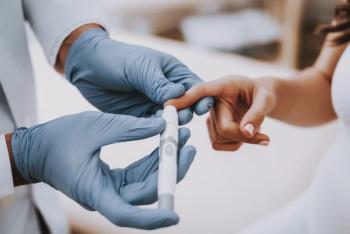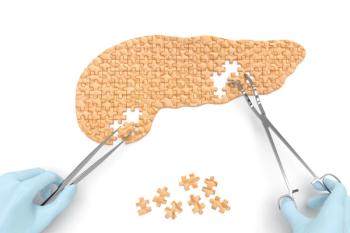
A National Drug Shortage Creates Care Challenges in Oncology
A short supply of cisplatin and carboplatin is forcing health care providers to find less effective alternative treatments.
Patients with cancer across the United States are encountering delays in receiving vital medications due to a national drug shortage that has reached a level not seen since 2014, according to data from Pharmacists Advancing Healthcare.1
The 2 chemotherapy drugs—cisplatin and carboplatin—are given as injections by health care providers and are used to treat several different cancers, including bladder, lung, ovarian and testicular. The shortage of these medications is forcing hospitals and other health systems to find alternative treatments, most of which are not as effective.2
“If these drugs are not available, people are going to get inferior care,” William Dahut, chief medical officer at the American Cancer Society, told the New York Times.3 “That’s the bottom line. These aren’t third- or fourth-line drugs where there are multiple other agents around. These are used upfront for people you are trying to cure.”
Cisplatin was first reported to be in short supply by the FDA on February 10, and was followed by carboplatin on April 28. The agency has said it estimates that the shortage will last at least until sometime in June.
Drug shortages are not uncommon and can be caused by several issues. One of the largest factors is typically a concern with quality, but delays in manufacturing and the discontinuation of products can also contribute to the problem, said Emily Thakur, team leader for the FDA’s Center for Drug Evaluation’s drug shortage staff.4
In an attempt to address concerns around the country’s drug supply, the Biden administration put together a team to find long-term solutions to the problem, Bloomberg reported.5 Officials have been meeting regularly and have intensified their efforts in light of recent worries surrounding patients’ ability to get life-saving medications.
But the shortage of cisplatin and carboplatin has made 1 oncology practice speak out about inadequacies in regulating average selling prices, which can affect a manufacturer’s ability to produce generic drugs.
The Florida Cancer Specialists & Research Institute, a statewide oncology practice in Florida, asked for a public response about the drug shortage and urged people to bring the issue of pricing regulation up with their state legislators.6
"Our patients are on the receiving end of these unfortunate circumstances, already amid treatment or waiting to initiate life-saving therapies," said Lucio N. Gordan, president and managing physician at Florida Cancer Specialists. "Time is of the essence. We must take action now to instill regulatory pricing that will enable consistent and reliable production of these critical drugs.”
There are currently no regulatory policies in place that can help sustain and subsidize pricing for generic drug regimens, an issue that Florida Cancer Specialists says has diminished the supply in the oncology community.
In a survey of oncologists published in the New England Journal of Medicine, nearly 83% of physicians said that they were unable to prescribe a preferred chemotherapy agent because of shortages.7 Additionally, over 75% of the surveyed oncologists indicated that drug shortages prompted major changes in treatment, including a switch in the prescribed regimen or a substitution of different drugs.
The Michigan Health and Hospital Association, which has been impacted by the shortage of cancer drugs, issued a statement outlining strategies it supports to address the issue. These include removing regulatory obstacles faced by manufacturers and exploring incentives to encourage manufacturers to stay in, re-enter or initially enter the market.
“What makes the current shortage especially critical is that we are experiencing the same issue for two drugs in the same treatment space at the same time," said Paul Chadwick, chief procurement officer at Florida Cancer Specialists. "We struggle to treat patients with the best therapy available, and the next best therapies for their cancer treatment. Ultimately patients are paying the true price in this scenario."6
Reference
1. Drug Shortages Statistics. Pharmacists Advancing Healthcare. Accessed May 25, 2023. https://www.ashp.org/drug-shortages/shortage-resources/drug-shortages-statistics?loginreturnUrl=SSOCheckOnly
2. Patient Treatment Impacted by Shortage of Cancer Drugs. News Release. Michigan Health and Hospital Association. May 17, 2023. Accessed May 25, 2023. https://www.mha.org/newsroom/patient-treatment-impacted-by-shortage-of-cancer-drugs/
3. Drug Shortages Near an All-Time High, Leading to Rationing. News Release. New York Times. May 17, 2023. Accessed May 25, 2023. https://www.nytimes.com/2023/05/17/health/drug-shortages-cancer.html
4. CDER Conversation – The Latest in Drug Shortages. News Release. FDA. March 13, 2023. Accessed May 25, 2023. https://www.fda.gov/drugs/news-events-human-drugs/cder-conversation-latest-drug-shortages
5. White House Assembles Secret Team to Tackle Drug Shortages, Quality Woes. News Release. Bloomberg. May 10, 2023. Accessed May 25, 2023. https://www.bloomberg.com/news/articles/2023-05-10/drug-shortages-quality-woes-get-secret-white-house-attention
6. Nationwide Drug Shortage Calls for Immediate Reform on Pricing Regulation for Generic Drugs. News Release. Florida Cancer Specialists & Research Institute. May 15, 2023. Accessed May 25, 2023. https://www.prnewswire.com/news-releases/nationwide-drug-shortage-calls-for-immediate-reform-on-pricing-regulation-for-generic-drugs-301824923.html
7. Gogineni K, Shuman KL, Emanuel EJ. Survey of oncologists about shortages of cancer drugs. N Engl J Med. 2013;369(25):2463-2464. doi:10.1056/nejmc1307379
Newsletter
Pharmacy practice is always changing. Stay ahead of the curve with the Drug Topics newsletter and get the latest drug information, industry trends, and patient care tips.























